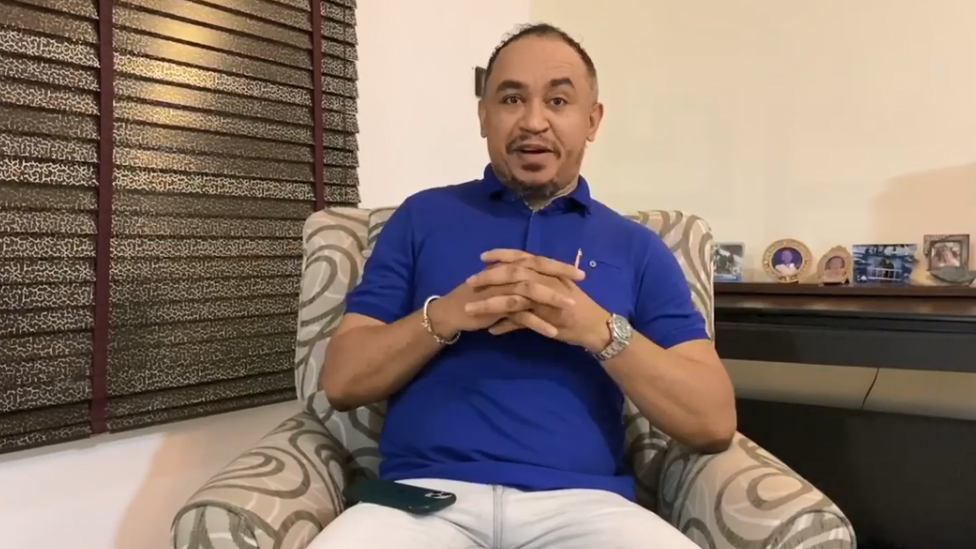Daddy Freeze Reveals He Faced Death Threats for Criticising Nigerian Pastors
Popular media personality and outspoken religious critic Ifedayo Olarinde, widely known as Daddy Freeze, has opened up about the intense persecution he faced for speaking out against controversial practices by Nigerian pastors. In a deeply personal revelation shared on The Honest Bunch podcast, where he now serves as a co-host, Daddy Freeze disclosed that his bold stance not only triggered serious backlash but also led to death threats—some of which were extended to his family members.
According to him, the backlash began over a decade ago when he started publicly challenging popular Nigerian pastors, especially on sensitive issues like tithing, financial exploitation, and doctrinal manipulation in churches. The OAP revealed that many did not only insult him but also targeted him with threats intended to silence his voice.
“If there’s anybody who has experienced persecution from Nigerian pastors and their minions, it’s me,” he said during the podcast. “They called me derogatory names. I had death threats that were transferred to my family members. That was 10 years ago. And the work I did is why you have people standing up today to the church.”
Daddy Freeze’s outspokenness sparked a wave of new conversations among Nigerians about the role of religious leaders and the rights of church members. His efforts gave many people the courage to question long-standing traditions and doctrines that had never been challenged publicly before. He believes that his sacrifice helped others find their voices.
He also took time to explain why he stopped going to church altogether. According to him, the turning point was after his divorce, when his then-pastor tried to reconcile him with his ex-wife. When he declined the offer, the church leadership excommunicated him, barring him from serving or sitting in the front row during services.
“After my divorce, my pastor tried to reconcile me and my ex-wife, but I told him I wasn’t interested,” he explained. “So, I was excommunicated from church activities. I felt completely rejected. But I remembered that Jesus didn’t condemn the woman who had five husbands. I only had one divorce, and I was treated like I committed murder.”
He added that this experience pushed him into deeper spiritual study. Rather than leave faith behind, Daddy Freeze began reading scriptures in their original languages, aiming to gain a clearer and more authentic understanding of the Bible. This marked the beginning of his now well-known religious advocacy through FreeNation, a platform that challenges harmful religious doctrines and promotes logic-based faith.
Reactions to the video have poured in across social media, with many praising Daddy Freeze for his bravery and the clarity he has brought to faith-based conversations. A user, classywigsbybree, commented, “Daddy is such an amazing and intelligent person. He helped me deconstruct the madness of religion. Now I am free and happy.”
Another follower, temtemz2023, wrote, “DF helped me break the fear and condemnation I felt when I didn’t pay my tithe. He made me understand the true principle behind it. I’ll always be grateful.”
Some also shared personal testimonies of how Daddy Freeze’s teachings helped them break away from the pressure and guilt that religious institutions placed on them. A user, iamdofficial, stated, “We plenty for this matter. Religion condemns BUT Christ does not. Stepped away, studied scripture through Jesus’ lenses, and the veil of religion was removed.”
In a related story, Daddy Freeze recently reacted to the tragic plane crash in India, where he questioned why people were quick to attribute survival to divine intervention. He highlighted the case of a Hindu passenger who survived the crash, asking which God people believed saved him, thereby sparking another wave of debate on religious bias and belief systems.
Daddy Freeze remains a controversial but highly influential voice in Nigeria’s ongoing religious and spiritual discourse. Despite the threats and opposition, he continues to challenge toxic doctrines and call for a more personal, informed, and scripturally accurate approach to faith.
Tips for Readers:
- Be open to studying religious texts for yourself in context.
- Understand that criticism of institutions does not mean hatred for faith.
- Question traditions that are used to manipulate or silence people.
- Use social media responsibly to engage in meaningful dialogue.
- Respect the spiritual journeys of others, even if they differ from yours.
















